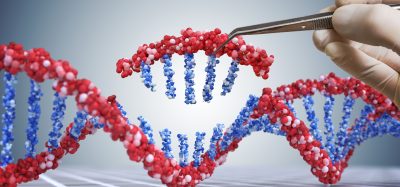Gut microbiome linked to rheumatoid arthritis prognosis
Posted: 15 September 2021 | Anna Begley (Drug Target Review) | No comments yet
New genomic study reveals that the microbiome could predict rheumatoid arthritis prognosis, potentially advancing treatments.


Researchers from the Mayo Clinic, US, used comprehensive precision genomics to discover that the gut microbiome could be linked to a patient’s future rheumatoid arthritis prognosis. The findings may lead to the development of prognostic biomarkers that could identify patients who would benefit from early treatment.
The team performed a comprehensive precision genomic analysis, known as “shotgun metagenomic sequencing,” on stool samples from 32 patients with rheumatoid arthritis at two separate clinical visits. They then investigated the connection between the gut microbiome and the smallest meaningful changes in clinical disease activity and found several traits of the gut microbiome linked to future prognosis.
“By looking at patients’ baseline gut microbiome profiles, we observed significantly different microbiome traits between patients who eventually showed improvement and those who did not,” explained John Davis, co-senior author of the study. “What was surprising is that our data suggest that depending on the eventual clinical outcome, gut microbiomes not only start at different ecological states, but also grow and develop differently,” added co-senior author Jaeyun Sung.
Biomarkers are redefining how precision therapies are discovered, validated and delivered.
This exclusive expert-led report reveals how leading teams are using biomarker science to drive faster insights, cleaner data and more targeted treatments – from discovery to diagnostics.
Inside the report:
- How leading organisations are reshaping strategy with biomarker-led approaches
- Better tools for real-time decision-making – turning complex data into faster insights
- Global standardisation and assay sensitivity – what it takes to scale across networks
Discover how biomarker science is addressing the biggest hurdles in drug discovery, translational research and precision medicine – access your free copy today
By using deep-learning artificial intelligence (AI), the investigators subsequently examined if they could predict whether a patient achieves clinical improvement. Overall, the predictive performance resulted in 90 percent accuracy, thereby showcasing the proof of concept that the integration of gut microbiome and AI technology could theoretically be an avenue to predict disease course in rheumatoid arthritis.
“With further development, such prognostic biomarkers could identify patients who will achieve early clinical improvement with a given therapy, thereby sparing them the expense and risk of other therapies that are less likely to be effective,” Davis clarified. “Conversely, such tools can detect patients whose disease symptoms are less likely to improve, and perhaps allow clinicians to target and monitor them more closely. Much is left to be done, but we are on the right path toward advancing our understanding of this disease in order to individualise medicine for patients with rheumatoid arthritis.”
“Ultimately, our study reveals that modifying the gut microbiome to enhance clinical outcome may hold promise as a future treatment for rheumatoid arthritis,” Sung concluded. “This could revolutionise how we deliver care to our patients.”
The findings were published in Genome Medicine.
Related topics
Artificial Intelligence, Biomarkers, Drug Targets, Genetic Analysis, Genomics, Molecular Biology, Personalised Medicine, Sequencing, Small Molecules, Technology, Therapeutics
Related conditions
rheumatoid arthritis
Related organisations
Mayo Clinic
Related people
Jaeyun Sung, John Davis








